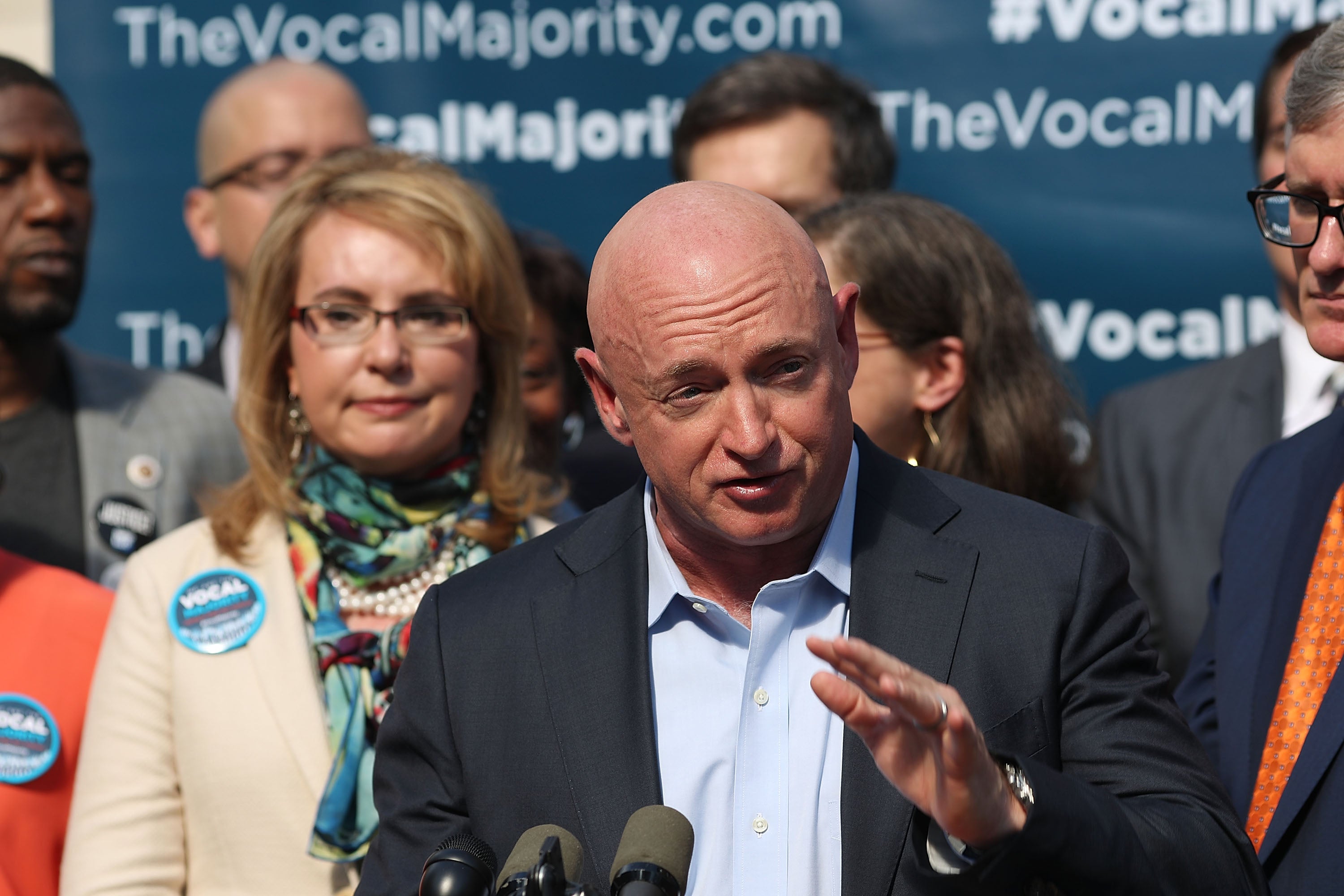Why the Arizona senate race could decide the future of the Supreme Court
Democrat win in Arizona could tip balance of nominee vote in lame-duck session

Your support helps us to tell the story
From reproductive rights to climate change to Big Tech, The Independent is on the ground when the story is developing. Whether it's investigating the financials of Elon Musk's pro-Trump PAC or producing our latest documentary, 'The A Word', which shines a light on the American women fighting for reproductive rights, we know how important it is to parse out the facts from the messaging.
At such a critical moment in US history, we need reporters on the ground. Your donation allows us to keep sending journalists to speak to both sides of the story.
The Independent is trusted by Americans across the entire political spectrum. And unlike many other quality news outlets, we choose not to lock Americans out of our reporting and analysis with paywalls. We believe quality journalism should be available to everyone, paid for by those who can afford it.
Your support makes all the difference.One Senate race might unexpectedly determine the future of the Supreme Court for a generation.
Were Democrat Mark Kelly to unseat Republican Senator Martha McSally in Arizona, he could be sworn into office as early as 30 November — perhaps in time to vote on a Supreme Court nominee to fill the vacancy on the bench left after the death of Justice Ruth Bader Ginsburg.
The Arizona race is a special election as Ms McSally was appointed to her seat by Republican governor Doug Ducey, following the death of Senator John McCain in 2018.
State election law says that the final result of the election must be confirmed by the end of November, assuming there are no legal challenges.
Mr Kelly, an astronaut and husband of former representative Gabby Giffords, has held a lead over Senator McSally for much of the campaign. The latest New York Times-Siena poll, released on Friday, has him ahead by eight points.
A win for Mr Kelly would narrow the Republican Senate majority to 52-48 in the post-election lame-duck session, which is potentially when a vote could be held on the replacement justice were it to be held up ahead of the election.
Other factors are also at play, as several Republican senators have said they would hold off on voting for a new justice until after the next inauguration.
Senators Susan Collins of Maine, Chuck Grassley of Iowa, Lisa Murkowski of Alaska, and Mitt Romney of Utah, have all made statements to that effect on the record — but it is unclear whether they will stick to them.
Senator Lindsey Graham said on the record in 2018 that once the primary process has started in an election year, votes on nominations to the court should cease. He specifically cited the last year of the current administration as an example.
However, the South Carolina senator tweeted on Saturday that he would now support the president “in any effort to move forward regarding the recent vacancy created by the passing of Justice Ginsburg”.
After paying her respects to Justice Ginsburg, Senator McSally tweeted on Friday night that the Senate should go ahead and vote on a nominee selected by president Donald Trump.
Mr Kelly did not share his thoughts on when the vacancy should be filled, but did pay tribute to Justice Ginsburg.
Ms McSally previously lost a race for the other Arizona Senate seat to Democrat Kyrsten Sinema. A win by Mr Kelly would mean the state would send two Democrat senators to Washington.
The same poll that has Mr Kelly ahead in his race also has Joe Biden leading president Donald Trump by nine points, 49 to 40 per cent.
Arizona hasn’t voted Democrat since 1996 when Bill Clinton won the state’s 11 Electoral College votes.




Join our commenting forum
Join thought-provoking conversations, follow other Independent readers and see their replies
Comments